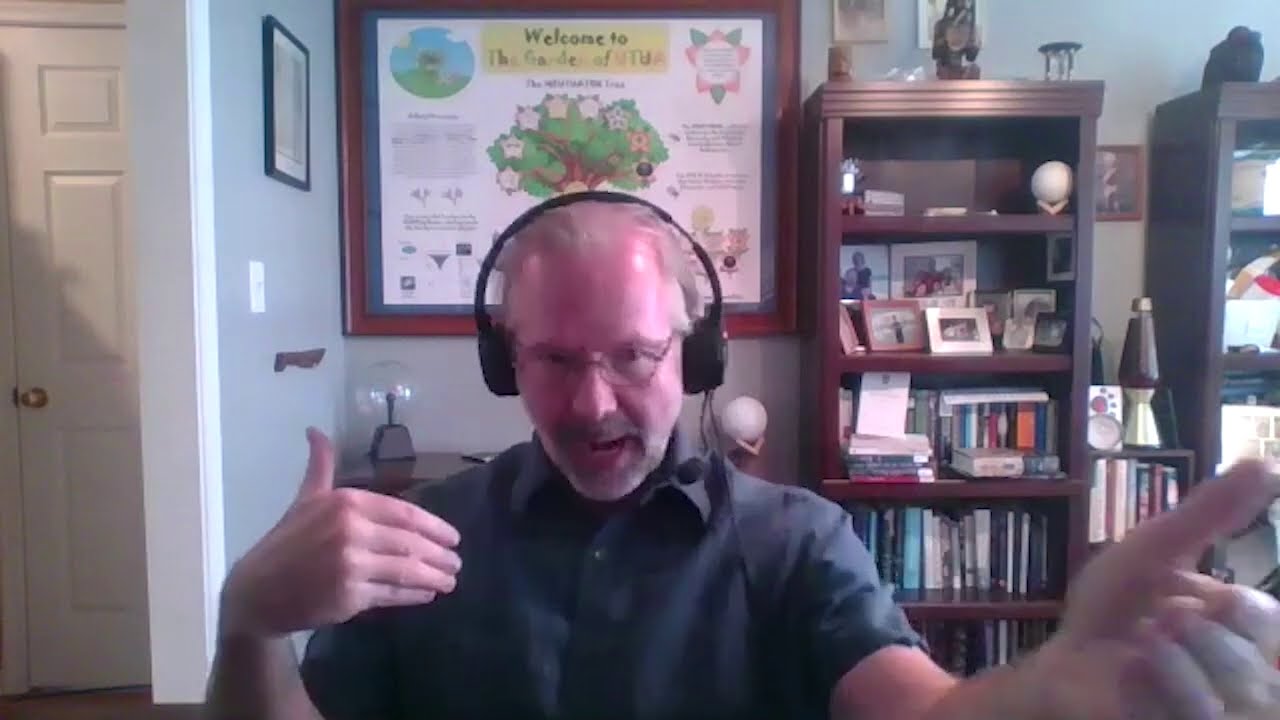John Vervaeke
This is part of a series of dialogues between myself and Gregg Henriques about the problem of consciousness, as part of The Cognitive Science Show. Here we lay out the beginnings of how to formulate the problem. The problem of consciousness is actually made up of three problems:
1) The function problem: what does consciousness do?
2) The nature/generation problem: how something like consciousness fit into the scientific worldview?
3) The integration problem: what is the relationship between the answers to questions (1) and (2)?
Gregg and I are going to spend a lot of time in formulating these problems clearly through historical, phenomenological, and functional analysis before responding to them.
In this episode we continue the task of formulating the problem by looking at two more of Descartes key arguments including the debate with Hobbes. We also investigate Descartes attempts to answer the nature and function problems in an integrated manner and the connections he draws between intelligence, consciousness and reason.
Thank you for your support!
Source




So a question for John on what precisely is meant by aspectual representation. By this, do you mean a token of sorts which is kind of a fixed thing, or are you thinking more of a process that Robert Rosen might call a modeling relation. The latter is far more powerful because of the ( sorry about the math ) functorial connection. Such a model ( which runs at faster than ambient time) over some finite subset of aspects ( falibally because of its essential incompleteness ) is a mapping which preserves causal structure as well as material transformational structure. I struggle to communicate this without a diagram…see any recreation of Rosen’s iconic diagram of the modeling relation.
Thank you for this episode! Please consider making a series of shorter vids in which you describe things such "integrated information theory", "spontaneous brain", "predictive coding", "ontic structuralism", "object oriented ontology", "symmetry theory of valence", "brainwaves and their relevance", "adaptive resonance theory", "global neuronal workspace", etc.
In my YouTube series Stripping it right back, I jump straight into the gut of phenomenology and begin to relay the mind through a’ prior structures and the axioms that support their place within. I am doing the king fu if you will as opposed to alluding to the work of the king fu masters.
As much as I respect what was said, it didn’t say anything. Talking about past masters is not addressing the phenomenology of mind. It keeps going around in circles. Complex circles but circles nonetheless. Yap.
I would love a conversation between JV and Bernardo Kastrup. The dutch philosopher has a solution under analytical idealism of the generative problem (which btw I would probably consider an instance of begging the question), compatible with current science and does not require a god.
I feel so blessed to have access to all these secrets. Like is there anyone else as on the cutting edge as the cognitive rat pack?
TYVM great talk
Great talk! Looking forward to the next episode !
https://www.cise.ufl.edu/~anand/pdf/Panpsychism_Emergence_…Physicalism.pdf
2:15 Recap of previous videos
12:00 Problems of Cartesian worldview. First Descartes' argument – connection between mind and matter.
15:15 Second Descartes' argument – comparative realness and intelligibility.
28:22 Hobbes. Cognition as computation.
31:45 Third Descartes' argument – reasoning and meaning.
38:17 Information as matter/energy vs information semantics.
41:20 Recap of three arguments.
46:40 Function problem. What consciousness do?
51:54 Intelligence vs Consciousness.
54:41 Representations and covariants. Relevance of representations. Emergence of mind from matter through aspectualisation.
1:00:15 Conclusion.
2:15 Recap of previous videos
12:00 Problems of Cartesian worldview. First Descartes' argument – connection between mind and matter.
15:15 Second Descartes' argument – comparative realness and intelligibility.
——^ stamps sstole from Juhziz ^———–21:00 – ish, you talk about vacillating between the things…
I totally just watched the September Q&A (or a different one, been binging) where you talk about the tension exemplified in the prodigal son.
Here you seem to see it as a problem, and there a feature. Is it because we're missing the third thing to tension?
24:29 – trouble with trenches
25:55 – cognitive grammar and stabilizing realness
27:42 – Descartes' Hobbes-goblin
31:07 – Descartes^3
35:11 – presupposition misalignment
35:53 – Strong AI/Humanity's Children
37:39 – Bound up in the World Knot
<Chinese Room – John Searle>
38:12 – Model Semantics
40:01 – backdoor Aristotle
41:18 – argument recap
42:34 – Modern Western Sensemaking
44:33 – corpus callo sum
46:40 – what is consciousness for?
48:46 – Integrated Descartes Wrestling
51:05 – consciousness thermostat
54:18 – covariant reliability
55:55 – representative aspectuality
57:14 – aspectualization engine
58:37 – show me the hardware
Note: captions call aspectualization spectralization allatime, and it's totally a Freudian typo
1:00:03 – zero-point aspectualization
1:01:27 – startle-fMRI's ftw
1:04:00 – teaser trailer
JV says "the mind world problem?" And is this problem our habituated mode of "protective identification" that Melanie Klein pointed out as a disavowal of the unconscious nature of the Self? Like saying "the nervous system is an "information" system while disavowing the reality of its electro-chemical signalling? Disavowal is also present in the way we say "the mind" & effectively turn our mind into an "object?" And in conversations like this one, we see how two people do inter-subjective togetherness in a triangular fashion, as a disavowal of what is happening inside each person, within the real-time nature of "here & now?" Murray Bowen pointed this out in 1960s, as the way we use a "subject" as third point between two largely subconscious mind's?
Perhaps JV could try "slowing his nervous nature down" a bit to explore what Gregg Henriques was trying to "ferment" in the years when he thought of his "tree of knowledge schematics" as "riding the wave?" Or why Sufi wisdom refers to the body as "a shore on an ocean of being?" Or everybody could contemplate their own infancy & wonder what R. D. Laing was trying to ferment when he said: "We are bemused and crazed creatures. Strangers to ourselves and each other. We are all in a post-hypnotic trance induced during infancy?" Or even, what Plato meant when he said: "All this time we have been repeating the words 'know,' 'understand.' Yet we do not know what knowledge is?" He was talking about self-knowledge & neither John or Gregg can say what their mind is made of?
Please consider the strange world of our trance state "analogous" sense of Self & what psychoanalysis thinks about "object-relations?"
"According to the American Psychological Association, the expression can have two meanings:
(1) In psychoanalysis, projective identification is a defense mechanism in which the individual projects qualities that are unacceptable to the self onto another person, and that person internalizes the projected qualities and believes himself to be characterized by them appropriately and justifiably.
(2) In the object relations theory of Melanie Klein, projective identification is a defense mechanism in which a person fantasizes that part of his ego is split off and projected into the object in order to harm or to protect the disavowed part.
In this second sense, it can be said that in a close relationship, as between parent and child, lovers, or therapist and patient, parts of the self may, in unconscious fantasy, be thought of as being forced into the other person.
While based on Freud's concept of psychological projection, projective identification represents a step beyond. In R.D. Laing's words, "The one person does not use the other merely as a hook to hang projections on. He/she strives to find in the other, or to induce the other to become, the very embodiment of projection". Feelings which can not be consciously accessed are defensively projected into another person in order to evoke the thoughts or feelings projected.
Projective identification may be used as a type of defense, a means of communicating, a primitive form of relationship, or a route to psychological change; used for ridding the self of unwanted parts or for controlling the other's body and mind." https://en.wikipedia.org/wiki/Projective_identification
Double Gregg Henriques on intragal stage and now with Vervaeke. Totally geeking out bonus
The Cognitive Science Show… !!!